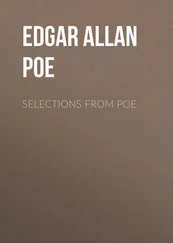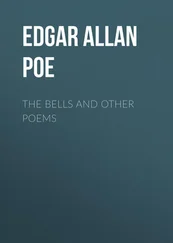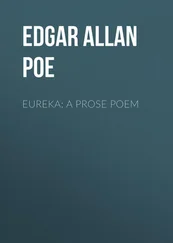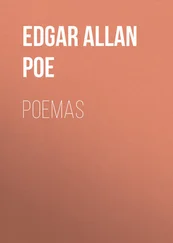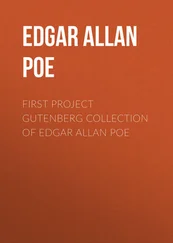Edgar Poe - CRITICISM
Здесь есть возможность читать онлайн «Edgar Poe - CRITICISM» весь текст электронной книги совершенно бесплатно (целиком полную версию без сокращений). В некоторых случаях можно слушать аудио, скачать через торрент в формате fb2 и присутствует краткое содержание. Жанр: на английском языке. Описание произведения, (предисловие) а так же отзывы посетителей доступны на портале библиотеки ЛибКат.
- Название:CRITICISM
- Автор:
- Жанр:
- Год:неизвестен
- ISBN:нет данных
- Рейтинг книги:3 / 5. Голосов: 1
-
Избранное:Добавить в избранное
- Отзывы:
-
Ваша оценка:
- 60
- 1
- 2
- 3
- 4
- 5
CRITICISM: краткое содержание, описание и аннотация
Предлагаем к чтению аннотацию, описание, краткое содержание или предисловие (зависит от того, что написал сам автор книги «CRITICISM»). Если вы не нашли необходимую информацию о книге — напишите в комментариях, мы постараемся отыскать её.
CRITICISM — читать онлайн бесплатно полную книгу (весь текст) целиком
Ниже представлен текст книги, разбитый по страницам. Система сохранения места последней прочитанной страницы, позволяет с удобством читать онлайн бесплатно книгу «CRITICISM», без необходимости каждый раз заново искать на чём Вы остановились. Поставьте закладку, и сможете в любой момент перейти на страницу, на которой закончили чтение.
Интервал:
Закладка:
This little rill that from the springs
Of yonder grove its current brings,
Plays on the slope awhile, and then
Goes prattling into groves again. the reader is apt to suppose that rill is the nominative to plays, whereas it is the nominative only to drew in the subsequent lines,
Oft to its warbling waters drew
My little feet when life was new. The proper verb is, of course, immediately seen upon reading these latter lines- but the ambiguity has occurred.
The Praries. This is a poem, in blank Pentameter, of about one hundred and twenty-five lines, and possesses features which do not appear in any of the pieces above mentioned. Its descriptive beauty is of a high order. The peculiar points of interest in the Prairie are vividly shown forth, and as a local painting, the work is, altogether, excellent. Here are moreover, evidences of fine imagination. For example The great heavens
Seem to stoop down upon the scene in love A nearer vault and of a tenderer blue
Than that which bends above the eastern hills.
Till twilight blushed, and lovers walked and wooed
In a forgotten language, and old tunes
From instruments of unremembered form
Gave the soft winds a voice.
The bee
Within the hollow oak. I listen long
To his domestic hum and think I hear
The sound of the advancing multitude
Which soon shall fill these deserts.
Breezes of the south!
Who toss the golden and the flame-like flowers,
And pass the prairie-hawk that poised on high,
Flaps his broad wing yet moves not!
There is an objectionable ellipsis in the expression "I behold them from the first," meaning "first time;" and either a grammatical or typographical error of moment in the fine sentence commencing
Fitting floor
For this magnificent temple of the sky With flowers whose glory and whose multitude
Rival the constellations!
Earth, a poem of similar length and construction to The Prairies, embodies a noble conception. The poet represents himself as lying on the earth in a "midnight black with clouds," and giving ideal voices to the varied sounds of the coming tempest. The following passages remind us of some of the more beautiful portions of Young.
On the breast of Earth
I lie and listen to her mighty voice;
A voice of many tones-sent up from streams
That wander through the gloom, from woods unseen
Swayed by the sweeping of the tides of air,
From rocky chasm where darkness dwells all day,
And hollows of the great invisible hills,
And sands that edge the ocean stretching far
Into the night- a melancholy sound!
Ha! how the murmur deepens! I perceive
And tremble at its dreadful import. Earth
Uplifts a general cry for guilt and wrong
And Heaven is listening. The forgotten graves
Of the heart broken utter forth their plaint.
The dust of her who loved and was betrayed,
And him who died neglected in his age,
The sepulchres of those who for mankind
Labored, and earned the recompense of scorn,
Ashes of martyrs for the truth, and bones
Of those who in the strife for liberty
Were beaten down, their corses given to dogs,
Their names to infamy, all find a voice!
In this poem and elsewhere occasionally throughout the volume, we meet with a species of grammatical construction, which, although it is to be found in writing of high merit, is a mere affectation, and, of course, objectionable. We mean the abrupt employment of a direct pronoun in place of the customary relative. For example Or haply dost thou grieve for those that die For living things that trod awhile thy face,
The love of thee and heaven, and how they sleep,
Mixed with the shapeless dust on which thy herds
Trample and graze? The note of interrogation here, renders the affectation more perceptible.
The poem To the Apenines resembles, in meter, that entitled The Old Man's Funeral, except that the former has a Pentameter in place of the Alexandrine. This piece is chiefly remarkable for the force, metrical and moral, of its concluding stanza.
In you the heart that sighs for Freedom seeks
Her image; there the winds no barrier know,
Clouds come and rest and leave your fairy peaks;
While even the immaterial Mind, below,
And Thought, her winged offspring, chained by power,
Pine silently for the redeeming hour.
The Knight's Epitaph consists of about fifty lines of blank Pentameter. This poem is well conceived and executed. Entering the Church of St. Catherine at Pisa, the poet is arrested by the image of an armed knight graven upon the lid of a sepulchre. The epitaph consists of an imaginative portraiture of the knight, in which he is made the impersonation of the ancient Italian chivalry.
Seventy-six has seven stanzas of a common, but musical versification, of which these lines will afford an excellent specimen.
That death-stain on the vernal sword,
Hallowed to freedom all the shore In fragments fell the yoke abhorred The footsteps of a foreign lord
Profaned the soil no more.
The Living Lost has four stanzas of somewhat peculiar construction, but admirably adapted to the tone of contemplative melancholy which pervades the poem. We can call to mind few things more singularly impressive than the eight concluding verses. They combine ease with severity, and have antithetical force without effort or flippancy. The final thought has also a high ideal beauty.
But ye who for the living lost
That agony in secret bear
Who shall with soothing words accost
The strength of your despair?
Grief for your sake is scorn for them
Whom ye lament, and all condemn,
And o'er the world of spirit lies
A gloom from which ye turn your eyes. The first stanza commences with one of those affectations which we noticed in the poem "Earth."
Matron, the children of whose love,
Each to his grave in youth have passed,
And now the mould is heaped above
The dearest and the last.
The Strange Lady is of the fourteen syllable metre, answering to two lines, one of eight syllables, the other six. This rhythm is unmanageable, and requires great care in the rejection of harsh consonants. Little, however, has been taken, apparently, in the construction of the verses
As if they loved to breast the breeze that sweeps the cool clear sky.
And thou shoudst chase the nobler game, and I bring down the bird. Or that strange dame so gay and fair were some mysterious foe, which are not to be pronounced without labor. The story is old- of a young gentleman who going out to hunt, is inveigled into the woods and destroyed by a fiend in the guise of a fair lady. The ballad character is nevertheless well preserved, and this, we presume, is nearly every thing intended.
The Hunter's Vision is skilfully and sweetly told. It is a tale of a young hunter who, overcome with toil, dozes on the brink of a precipice. In this state between waking and sleeping, he fancies a spirit-land in the fogs of the valley beneath him, and sees approaching him the deceased lady of his love. Arising to meet her, he falls, with the effort, from the crag, and perishes. The state of reverie is admirably pictured in the following stanzas. The poem consists of nine such.
All dim in haze the mountains lay
With dimmer vales between;
And rivers glimmered on their way
By forests faintly seen;
While ever rose a murmuring sound
From brooks below and bees around.
He listened till he seemed to hear
A strain so soft and low
That whether in the mind or ear
The listener scarce might know.
With such a tone, so sweet and mild
The watching mother lulls her child.
Catterskill Falls is a narrative somewhat similar. Here the hero is also a hunter- but of delicate frame. He is overcome with the cold at the foot of the falls, sleeps, and is near perishing- but being found by some woodmen, is taken care of, and recovers. As in the Hunters Vision, the dream of the youth is the main subject of the poem. He fancies a goblin palace in the icy network of the cascade, and peoples it in his vision with ghosts. His entry into this palace is, with rich imagination on the part of the poet, made to correspond with the time of the transition from the state of reverie to that of nearly total insensibility.
Читать дальшеИнтервал:
Закладка:
Похожие книги на «CRITICISM»
Представляем Вашему вниманию похожие книги на «CRITICISM» списком для выбора. Мы отобрали схожую по названию и смыслу литературу в надежде предоставить читателям больше вариантов отыскать новые, интересные, ещё непрочитанные произведения.
Обсуждение, отзывы о книге «CRITICISM» и просто собственные мнения читателей. Оставьте ваши комментарии, напишите, что Вы думаете о произведении, его смысле или главных героях. Укажите что конкретно понравилось, а что нет, и почему Вы так считаете.


